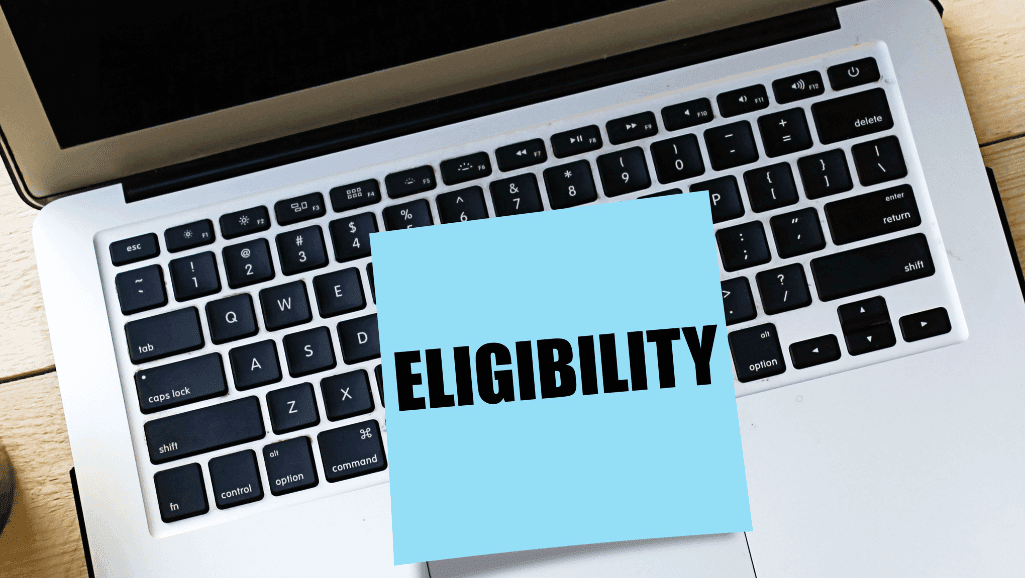
Small businesses are the heart of the American economy. They need flexible financial support to grow. Understanding small business financing solutions is key for owners looking to expand.
For many, getting a business loan is the first step. This guide will show you how to apply for business loans. It covers the essential steps and options.
Loans can help with costs, buying equipment, or growing your business. There are many loans for small businesses. Knowing your options helps make the right choice for your business.
This guide covers government-backed loans, like those from the Small Business Administration (SBA). It also explains the requirements for private loans. It’s a helpful resource for entrepreneurs ready to grow their businesses.
Key Takeaways
- Exploring a mix of private and SBA-guaranteed business loans can broaden financing options for small businesses.
- Knowing your business’s revenue, credit score, and financial needs is integral when securing capital for your business.
- Biz2Credit provides term loans of up to $1 million for qualified applicants, enhancing access to capital.
- The SBA 7(a) loan program provides loans up to $5 million, catering to various business needs.
- Lines of credit are popular among American business owners, as reported by the Federal Reserve.
- Meeting the minimum credit score defined by lenders is a foundational step in how to apply for business loans.
Understanding SBA Loan Programs and Lender Match
Getting funding is key for small businesses. The SBA-guaranteed loan program helps by making it easier to get capital. The Lender Match tool is a big part of this, connecting businesses with lenders who know SBA rules.
The Lender Match program is very effective. It gets about 50,000 requests for capital every month. It has nearly 1,000 lenders, including 257 community-based ones. This shows the SBA’s strong effort to help all kinds of businesses get funding.
How SBA Supports Small Business Financing
The U.S. Small Business Administration helps by offering different SBA loans. These include SBA 7(a) loans up to $5 million and microloans up to $50,000. In the 2024 fiscal year, over $23 billion in SBA 7(a) loans were approved.
The SBA Lender Match Process
The Lender Match tool is at the heart of connecting borrowers with lenders. It’s a simple way for small business owners to find SBA-approved lenders. Since President Biden took office, it has helped about 16.5 million new businesses.
Direct Loans for Disaster Recovery
The SBA offers direct loans for businesses hit by disasters. These loans can be up to $2 million. This shows the SBA’s commitment to helping businesses recover and rebuild.
Advantages of SBA-Guaranteed Loans
Small business owners often choose SBA-guaranteed loans for their benefits. These loans offer some of the best rates and flexible financing options. They help support the growth and stability of small businesses.
Competitive Terms and Fees
SBA-guaranteed loans have competitive terms. They provide fixed-rate financing for up to 10 years for equipment and working capital. For real estate, terms can go up to 25 years, making payments easier.
Interest rates are also capped. SBA 7(a) loans have rates from 3% to 6.5% above the base rate. This helps businesses manage their finances better.
Counseling and Ongoing Educational Support
SBA loans offer more than just money. They provide counseling and educational support. This help is vital for both new and experienced business owners.
It aims to ensure the long-term success and stability of businesses.
SBA Loan Variety: From Microloans to Real Estate
SBA-guaranteed loans meet a wide range of business needs. They offer microloans starting at $500 and larger amounts for big purchases or real estate. This makes them a flexible funding option for businesses.
Eligibility Criteria for SBA Loans
Knowing the small business loan requirements is key for potential borrowers. The Small Business Administration (SBA) offers several loan programs. Each program, like the 7(a) Loan, Express Loan, and 504 Loan, has its own set of criteria. It’s important to understand these to increase your chances of getting approved.
First, a business must be considered small. The SBA defines small businesses by the number of employees or annual receipts. These standards vary by industry.
Business owners must have invested their own time or money in the business. This shows commitment and credibility. Equity investment is also a big factor in the evaluation.
- To qualify for 7(a) small loans under $500,000, a business needs a FICO SBSS score of 155 or higher. This score helps lenders gauge the risk.
- For loans over $500,000, the SBA looks for a debt service coverage ratio (DSCR) of at least 1.15. This shows the business can cover loan payments.
- Lenders often prefer businesses that have been around for at least two years. This shows stability and performance.
The 504 Loan focuses on financing major assets like real estate and equipment. It requires the business’s net income to be less than $5 million for the last two years. It also looks at job creation.
SBA disaster loans help businesses affected by disasters. They require a minimum credit score, about 570 for COVID-19 EIDL loans under $500,000.
While requirements vary by loan type and lender, common elements include collateral, a detailed business plan, and financial statements. Lenders check your current finances and future projections. They also look at industry trends to see if you can repay the loan.
Understanding the business loan eligibility criteria is crucial for small business owners. Whether you’re starting or expanding, meeting these criteria can greatly improve your chances of loan approval.
Finding the Right SBA Loan for Your Business
For many small businesses, getting the right funding is key to success. The SBA offers various loans to meet different needs. It’s important for business owners to find the best loan providers within the SBA.
The SBA’s Lender Match is a great tool for finding lenders. It connects businesses with over 800 SBA-approved lenders across the country. This is especially helpful for quick loans to meet urgent financial needs.
Funder Matching and SBA-Approved Lenders
Looking into the SBA’s Preferred Lenders Program (PLP) is wise. These lenders, like Bank of America, offer fast loan approvals. They provide good terms, such as longer repayment periods and lower payments.
Loans for Exporters and Seasonal Financing
Exporters and businesses with seasonal income can find special loans. These loans have less strict criteria, making funding easier. This is crucial during off-peak seasons or big export deals.
| Key Benefit | Description |
|---|---|
| Lower Down Payments | SBA loans often require smaller down payments, making them accessible for newer businesses not yet flush with capital. |
| Flexible Overhead Requirements | These loans allow businesses to allocate more funds towards operational expenditures rather than fixed costs. |
| Discounts for Veterans | Veterans of the U.S. Armed Forces can receive a 25% discount on certain loan fees, enhancing accessibility to funding. |
In conclusion, finding the right SBA loan is crucial for your business. By using tools like the SBA Lender Match and PLP, you can get the financial support you need. This can greatly influence your business’s success.
Maintaining Good Credit for Loan Approval
Starting the small business loan application process means you need to know your credit well. Both personal and business credit for startups are key. Good credit can lead to better loan terms and more financing options.
Understanding how different factors affect your credit score is crucial. Payment history and how much you owe are big factors. They can help you get better interest rates and loan amounts.
Importance of a Comprehensive Business Plan
A solid business loan application process starts with a detailed business plan. This plan shows how you’ll use the loan and your expected profits. It proves you can pay back the loan.
Having a good business plan is key. Financial statements from a certified public accountant can make your application stronger. For more tips, check out resources from trusted financial institutions here.
Monitoring Personal and Business Credit Reports
It’s important to check your credit reports often. Mistakes can hurt your score. Make sure your reports are correct to look good to lenders.
Keep your credit mix varied and use less of your available credit. This can help improve your business’s financial image for lenders.
Knowing what lenders expect is key for small business loans. SBA lenders and traditional banks have different standards. They look for credit scores from mid-600s to over 740 for better terms.
Working on your credit score is important. It’s not just for getting a loan. It’s for getting a loan that helps your business grow. By following these steps, small businesses can do better in the small business loan application process.
Comparison Shopping for Government-Guaranteed Loans
When looking at government-guaranteed loans, it’s key to do a detailed small business loan comparison. This helps find the best lenders for small business loans that fit your needs. You’ll get low interest business loans and terms that work for your business.
Exploring SBA 7(a) and Microloan Program Options
The SBA 7(a) Loan Program is known for its flexibility. It supports many business needs, from buying equipment to refinancing debt. It offers up to $5 million with repayment terms up to 25 years for real estate.
The SBA Microloan Program is great for smaller needs. It provides loans up to $50,000 through non-profit groups. For more info, check out NerdWallet’s expert review on government business loans.
Navigating Minimum Dollar Amounts and Loan Terms
When comparing small business loans, knowing the minimum and maximum amounts is crucial. These amounts affect the loan terms. For example, SBA Express loans offer quick funding up to $500,000 with flexible terms.
| Lender | Min Credit Score | Loan Amount | Interest Rates | Terms |
|---|---|---|---|---|
| OnDeck | 625 | Variables | Base rate + Conditions | Adjustable |
| American Express Business Blueprint™ | 660 | $2,000 to $250,000 | Competitive | Flexible |
| National Funding | 600 | Customized | Base rate + Conditions | Variable |
Knowing these details helps you get the right funding for your business. Always compare terms, interest rates, and credit scores to your business’s financial health and future.
Various Types of Business Financing
The world of business financing is wide and varied. It caters to different stages and needs of a business. This includes everything from startup business loans to working capital loans. For startups and small businesses, it’s key to understand these options. They help achieve short-term goals and long-term growth.
Personal Lines of Credit and Risks
Personal lines of credit might seem good for business owners. They use their credit for business needs. But, there are risks. Mixing personal and business finances can harm personal credit if the business fails.
Business Lines of Credit vs. Term Loans
A business line of credit is flexible and great for managing cash flow. It’s unsecured, meaning no collateral is needed. Limits can be from $10,000 to over $1 million. On the other hand, term loans are for long-term needs like big purchases. They are secured and have set repayment plans.
For quick cash needs, a business line of credit is best. But, for big projects, term loans are better. Each option has its own interest rates, starting at 7.50 percent to 9.00 percent for lines of credit. Term loans’ rates can be between 8 percent to 30 percent.
Looking into all business financing options is smart. It helps make a choice that fits your business needs and growth plans. This way, businesses can keep running and grow.
Protecting Your Personal Finances
When looking for best business loans for startups and commercial loans, your personal and business finances get mixed. It’s crucial to keep them separate. This is not just a good idea, but a must.
Benefits of Separate Business Banking
Getting a business bank account is key for financing for entrepreneurs. It helps manage money well, which is important for getting small business financial assistance. A separate account makes bookkeeping easier and helps with taxes and audits.
Understanding FDIC Insurance on Business Accounts
FDIC insurance is a big help in business finance. It protects both personal and business accounts up to $250,000. This means your money is safe, no matter what.
Here are some smart ways to keep your finances in check while running a business:
- Make a financial plan that works for both your business and personal life.
- Use business credit cards to keep track of business expenses.
- Build a strong business credit profile with a DUNS number to get better loans.
| Financial Behavior | Impact on Business Owners |
|---|---|
| Reduction of personal salary for business needs | 40% of owners impacted in cash-crisis scenarios |
| Use of family members in business | Keeps revenue in family but increases dependency risk |
| Establishment of separate business identity | Facilitates business loans and credit acquisition |
| Diversification of investment | Reduces risk of loss concentrated in one industry |
Keeping your business and personal finances separate is smart. It helps your business get better loans and grow. By doing this, you can use commercial loans and financing for entrepreneurs better.
Additional Financial and Government Resources for Small Businesses
For entrepreneurs looking for small business financial assistance, knowing about government resources is key. The Small Business Administration (SBA) and the Federal Trade Commission (FTC) offer vital support. They help businesses get government small business loans and protect consumer interests.
Finding Support through FDIC and SBA Materials
Small businesses can greatly benefit from the materials and guides by the FDIC and SBA. These resources help manage business finances and are vital for those looking into financing for startups. For instance, the SBA’s district offices across all 50 states offer specific resources, training, and advice.
They also provide SBA Microloans up to $50,000. This is a big help for small businesses and not-for-profit childcare centers.
Utilizing Federal Trade Commission and IRS Guidance
Following federal guidelines and using IRS resources can help with taxes and regulations. This is important for getting the best business loan rates. The FTC also protects businesses from scams and boosts consumer trust, which is crucial for a business’s reputation.
There are many programs and incentives, like the U.S. Export Assistance Center’s tools for international markets and Grants.gov. These platforms help find government small business loans and grants. They make it easier to explore financing options and grow your business.
Business Loans for Small Businesses
Finding the right financing options for small businesses can be tough. It’s key to know the different small business loans out there. This helps entrepreneurs grow and keep their businesses running smoothly. There are many choices, from banks to alternative funding for small businesses.
OnDeck is a lender that offers flexible loans for small businesses. They have term loans and lines of credit. The credit limits range from $6K to $100K, and term loans from $5K to $250K. Their funding options help with growth or managing cash flow.
| Type of Loan | Amount Range | APR Range | Loan Features |
|---|---|---|---|
| OnDeck Term Loan | $5K – $250K | Varies | Secured, flexible use |
| OnDeck Line of Credit | $6K – $100K | Varies | Flexible withdrawals, easy renewal |
| SBA Loans | $30K – $5M | 11% – 14.5% | Long-term financing, lower interest rates |
Each loan option, like those from the Small Business Administration (SBA), has its own rules. SBA loans offer amounts from $30,000 to $5 million. They are great for businesses that meet strict criteria. These loans have good interest rates and long repayment plans, as Bank of America explains.
There are also alternative funding sources like merchant cash advances and invoice factoring. These options give businesses cash based on their assets and operations. Picking the right financing means looking at both immediate needs and future financial health.
To make smart financial choices, entrepreneurs need to understand their options well. Knowing the terms and benefits helps make better decisions. This knowledge also helps use funding for lasting growth.
Conclusion
Finding the best business loans is key for entrepreneurs. With 56% of small companies looking for funding, knowing where to find it is vital. Small Business Administration (SBA) loans are popular for their good terms.
Small businesses are the backbone of the economy, creating 62% of new jobs since 1995. They drive innovation and help communities grow.
Small business owners have many financial options, from working capital loans to SBA loans. It’s important to choose wisely, based on their goals. The average SBA loan in 2023 was $479,685, showing their big impact.
Being well-prepared is crucial. Small businesses usually get half of what they ask for and 59% of SBA loans are approved. A good business plan and knowing where to get loans can help a lot.
Looking ahead, online applications are getting easier, and loans are being approved faster. With the right help, small businesses can do well and grow.










